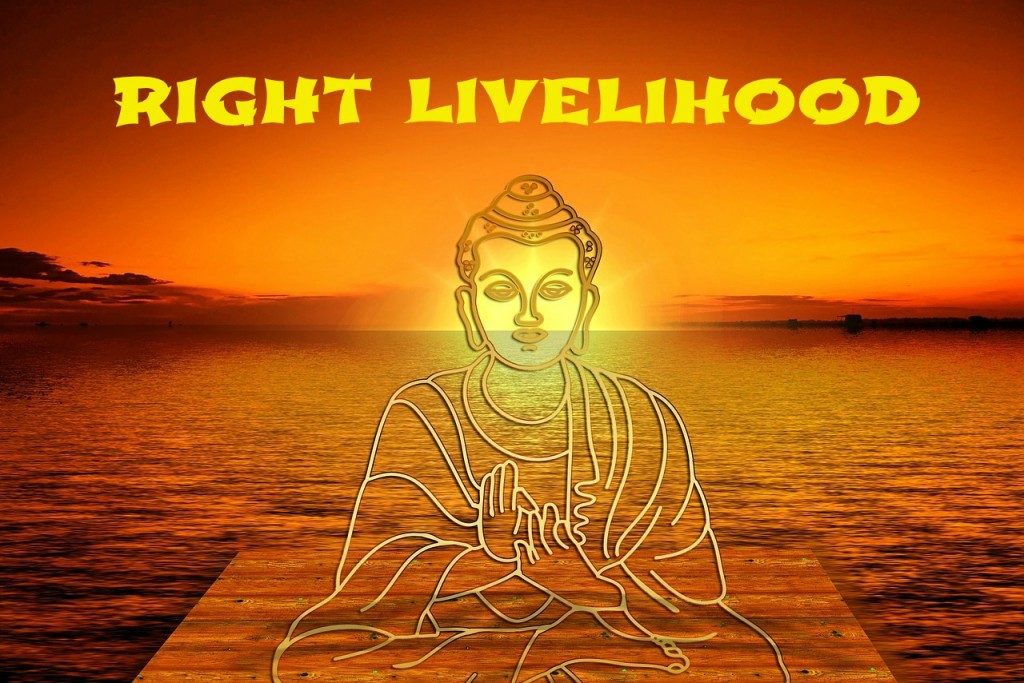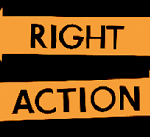Right livelihood is considered as of primal importance for the entire humanity. Human being has to choose a livelihood or work for his survival in life. Human being also has an important responsibility towards the maintenance of his family. Man’s livelihood or the work being done – is very important from the spiritual point of view.

In the spiritual path under which Lord Buddha taught for the ‘liberation’ from sorrows- right livelihood is a very important one. Right livelihood or right-work implies that the work being done to earn a living is ethically and morally right and does not harm anyone or harm to any life.
Ajiva
Lord Buddha in his greatest eightfold path taught “Samma Ajiva” which is Pali’s term implies the right livelihood for human beings. The concept is based upon the scientific principle of cause and effect. If any livelihood causing harm to anyone, living entity- whether a human being or a small creature like an ant. It will follow nature’s cause-effect doctrine and bring its effect directly or indirectly.
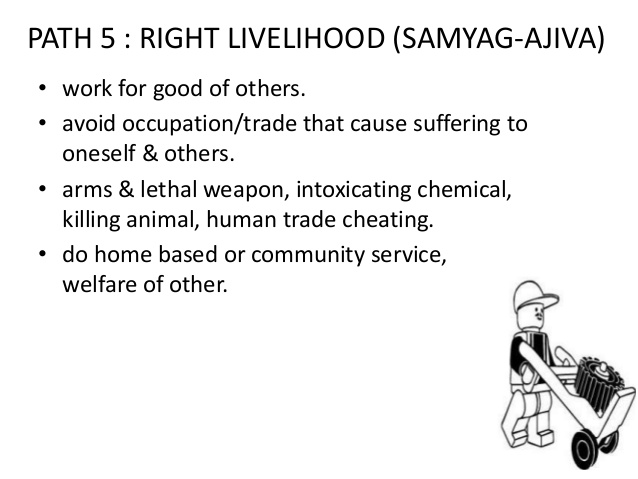
Hence, while choosing the livelihood one must be careful and mindful that it must not be at the cost of harming others. Any work that primarily causes violence or harm to any creature or living entity – is prohibited under the right livelihood. There are essentially some specified works that are considered to be completely prohibited under right livelihood.
Weapons

The trade of weapons is considered a prohibited act because it is believed that the use of weapons leads to the killing of any human being or animal. Therefore, you should not engage in the arms trade or adopt livelihood directly or indirectly.
Human trade
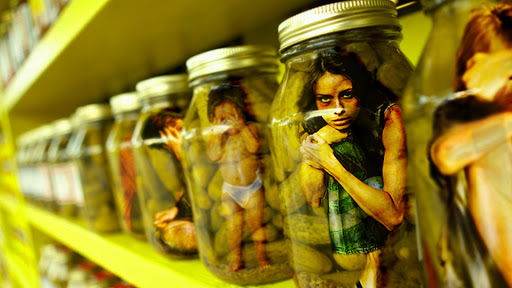
Human trade or forced human being or forced labor from it or taking immoral work – is considered an unethical livelihood. At the present time, there are many such acts of child labor, forced labor, prostitution, etc. which are completely prohibited as immoral, inferior, and contrary to the spiritual point of view.
Meat

Under the trade of meat, the trade of meat of innocent animals, birds, or any creature has been considered as prohibited. In the meat trade, either directly or indirectly, animals and birds are killed, which is considered an unethical and inferior act.
Intoxicants
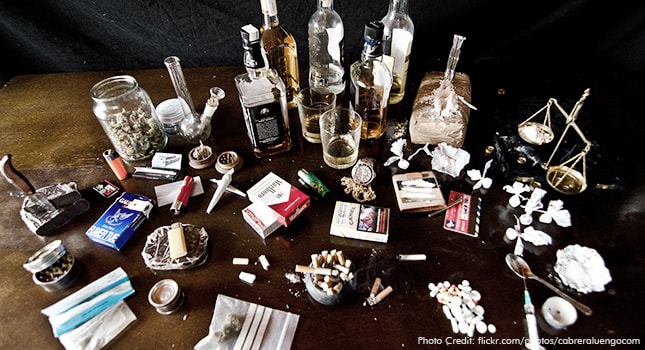
The trade of intoxicants such as alcohol, opium, hemp-cannabis, or any type of intoxicants is considered to be a wrongful livelihood. It is believed that human beings do not have control over themselves by consuming these substances. Also, the human being finds himself in a state of unconsciousness. From the spiritual point of view, any work done by a human being in an unconscious state of mind is – Sin. For this reason, this business is also considered a prohibited work. At present, the majority of the human race and especially the youth, are consuming drugs and becoming part of prohibited sinful acts.
Poison

The trade of poison has also been considered a prohibited act because this poison directly or indirectly causes the killing of an organism. The businessman may think that “I am not poisoning anyone, so I have not become a partaker of sin”, though by joining in the trade of poison, he is indirectly becoming a mere partner or an instrument for unethical deeds i.e. sin. Therefore, this livelihood is also definitely kept in the category of ‘prohibited work’.
Wrong Intention

Right livelihood or doing the right work- is a broad concept. This rule is not followed only by not indulging in prohibited work. Other measures are also important to ensure proper livelihood. Humans have the responsibility for the financial security of the family. It is also the duty of human beings that their expenditure must be less than their income. That is, both our income and expenditure should be harmonized. Human being becomes indebted due to excess expenditure and less income and that’s why he loses his mental peace and invites sorrows( Dukhha). The human being may be doing good work or practice the right livelihood, but even in that work, if he lies for the sake of earning a living, cheat others, deal dishonestly, then the money earned will not be considered a right livelihood. Therefore, the right work should be done with due diligence, honesty, and right intention under ‘right livelihood’.
Conclusion
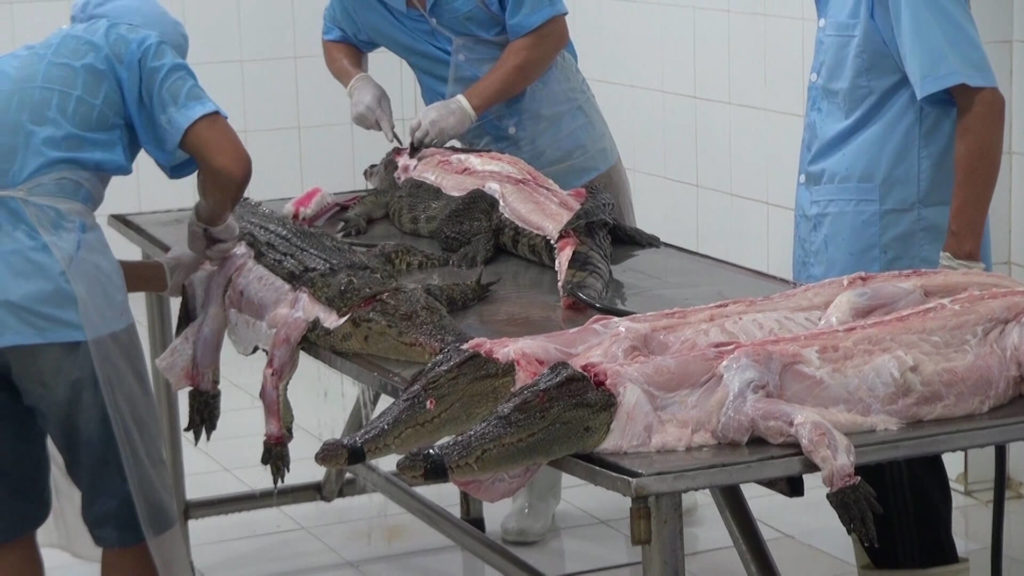
The question arises that what are the tasks that can be included in the right livelihood. Except for prohibited works, work done with honesty and hard work which benefits the others, if the welfare of the other is inherent– it is considered a ‘right livelihood’. While choosing work, keep this in mind, do not choose any livelihood that directly or indirectly causes harm to any other creatures or living being. The karma done is very important because it brings its ‘karma-fruit’ accordingly. If a scavenger does his job with due determination and honesty, then it is a work of welfare and it will be found to be a right- livelihood. Although one trades in leather bags, it is an unethical or wrongful livelihood because the leather used in it is associated with the killing of some creatures.
courtesy : Google images


